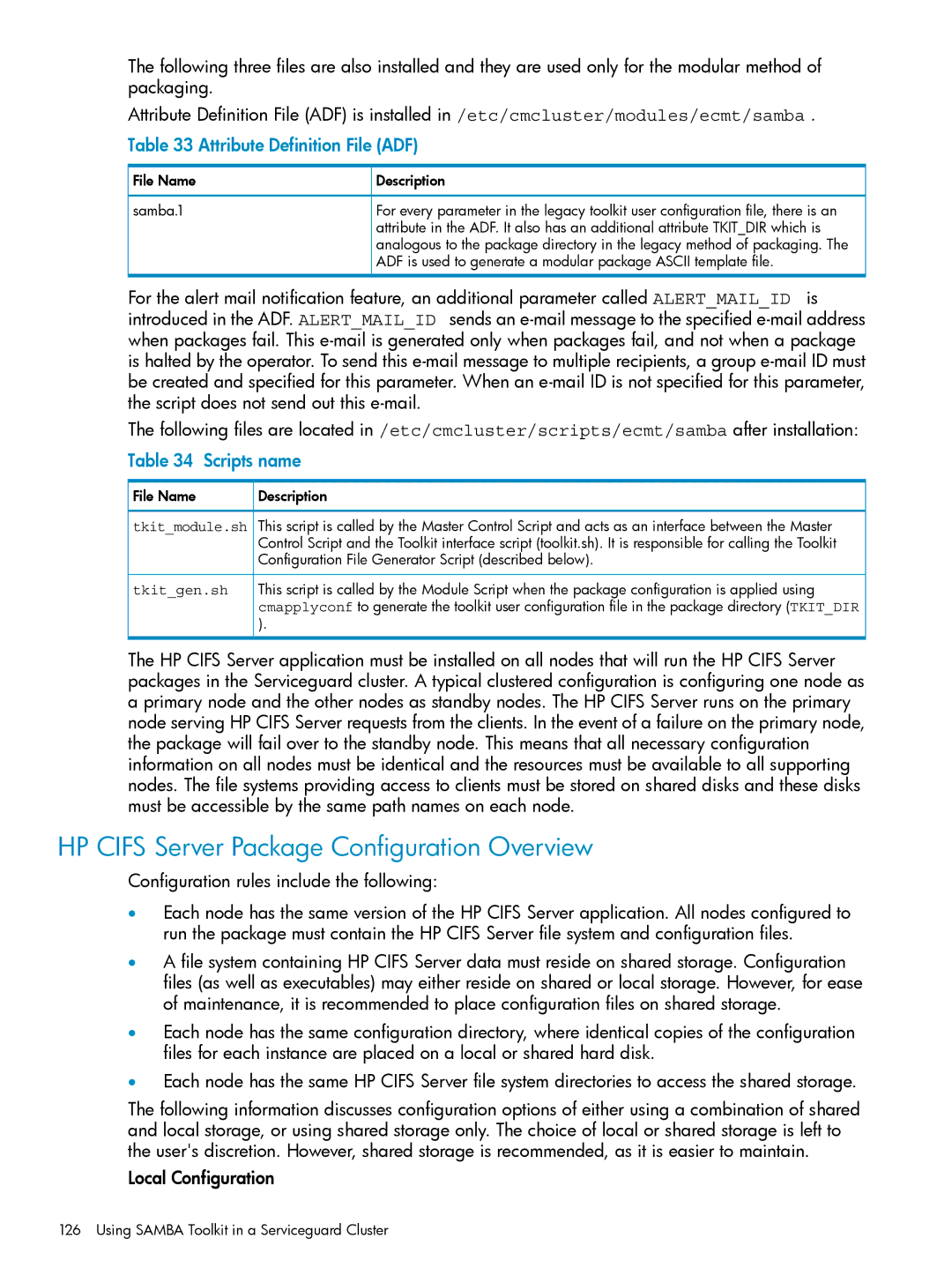
The following three files are also installed and they are used only for the modular method of packaging.
Attribute Definition File (ADF) is installed in /etc/cmcluster/modules/ecmt/samba .
Table 33 Attribute Definition File (ADF)
File Name | Description |
samba.1 | For every parameter in the legacy toolkit user configuration file, there is an |
| attribute in the ADF. It also has an additional attribute TKIT_DIR which is |
| analogous to the package directory in the legacy method of packaging. The |
| ADF is used to generate a modular package ASCII template file. |
For the alert mail notification feature, an additional parameter called ALERT_MAIL_ID is introduced in the ADF. ALERT_MAIL_ID sends an
The following files are located in /etc/cmcluster/scripts/ecmt/samba after installation:
Table 34 Scripts name
File Name | Description |
tkit_module.sh This script is called by the Master Control Script and acts as an interface between the Master Control Script and the Toolkit interface script (toolkit.sh). It is responsible for calling the Toolkit Configuration File Generator Script (described below).
tkit_gen.sh This script is called by the Module Script when the package configuration is applied using cmapplyconf to generate the toolkit user configuration file in the package directory (TKIT_DIR ).
The HP CIFS Server application must be installed on all nodes that will run the HP CIFS Server packages in the Serviceguard cluster. A typical clustered configuration is configuring one node as a primary node and the other nodes as standby nodes. The HP CIFS Server runs on the primary node serving HP CIFS Server requests from the clients. In the event of a failure on the primary node, the package will fail over to the standby node. This means that all necessary configuration information on all nodes must be identical and the resources must be available to all supporting nodes. The file systems providing access to clients must be stored on shared disks and these disks must be accessible by the same path names on each node.
HP CIFS Server Package Configuration Overview
Configuration rules include the following:
•Each node has the same version of the HP CIFS Server application. All nodes configured to run the package must contain the HP CIFS Server file system and configuration files.
•A file system containing HP CIFS Server data must reside on shared storage. Configuration files (as well as executables) may either reside on shared or local storage. However, for ease of maintenance, it is recommended to place configuration files on shared storage.
•Each node has the same configuration directory, where identical copies of the configuration files for each instance are placed on a local or shared hard disk.
•Each node has the same HP CIFS Server file system directories to access the shared storage.
The following information discusses configuration options of either using a combination of shared and local storage, or using shared storage only. The choice of local or shared storage is left to the user's discretion. However, shared storage is recommended, as it is easier to maintain.
Local Configuration
